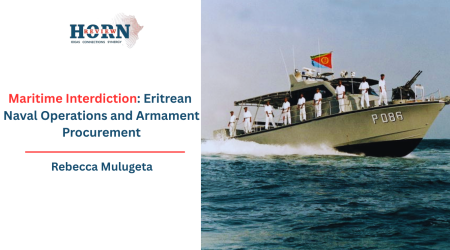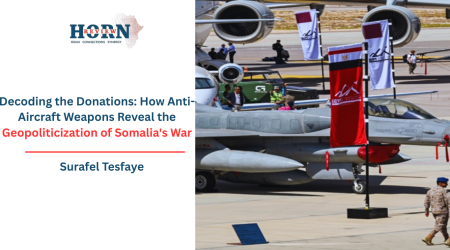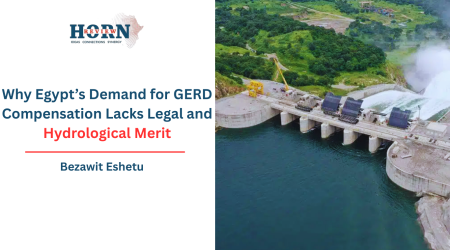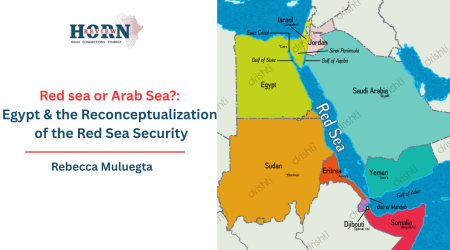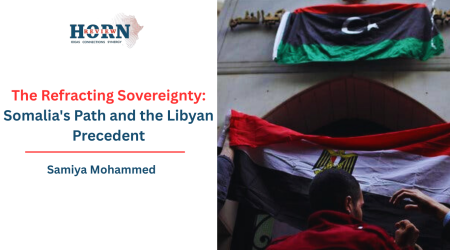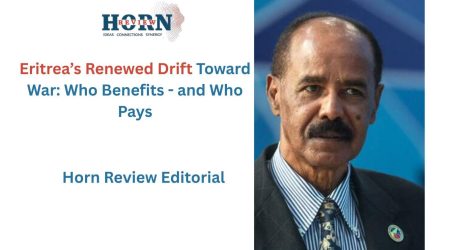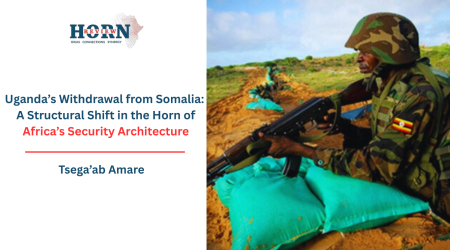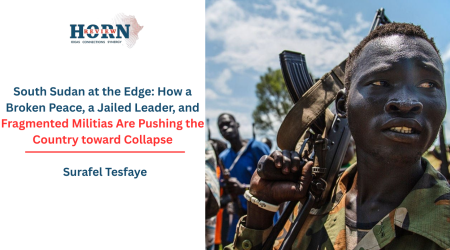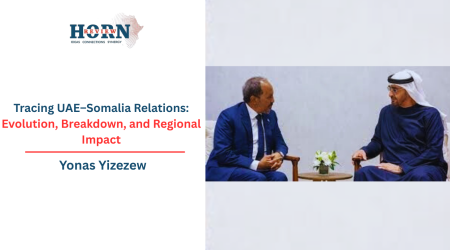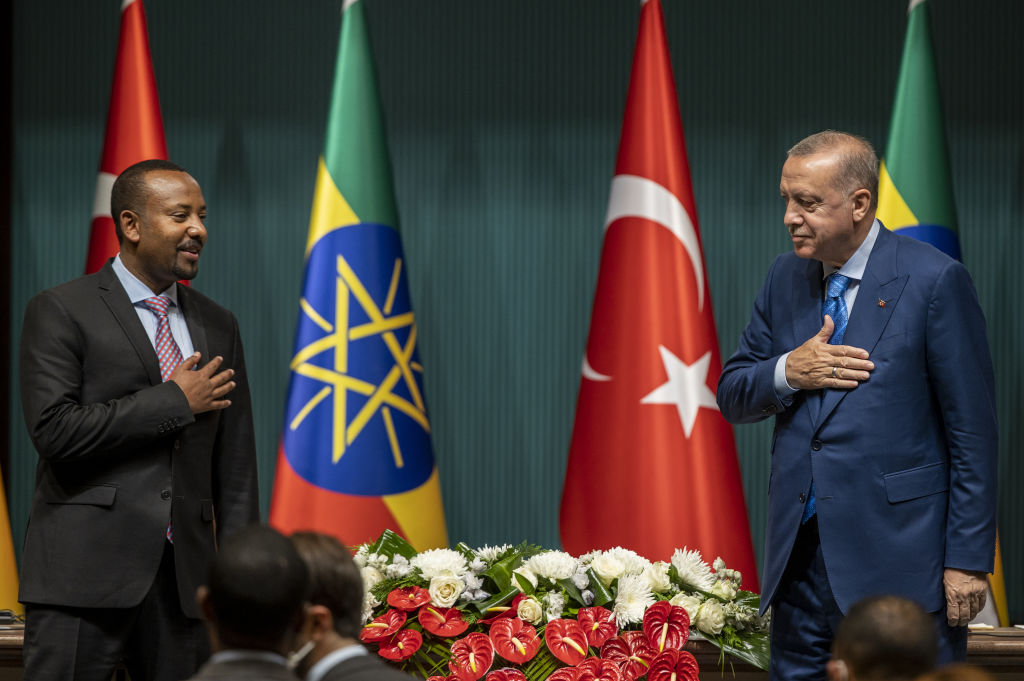
16
Sep
Understanding Neo-Ottomanism And Turkiye’s Engagement In The Horn Of Africa
The waning influence of the Western-led liberal order has coincided with the emergence of middle powers ready to project authority far beyond their own borders. Among these, Turkiye stands out for both the ambition and assertiveness of its foreign policy. Under the leadership of the Justice and Development Party (AKP) and President Recep Tayyip Erdogan, Ankara has sought to reframe its global posture. It has done so by drawing heavily on Ottoman-Islamic legacies while loosening its long-standing dependence on NATO and the European Union. This is increasingly becoming more apparent in the Horn of Africa, a region that combines strategic maritime routes, volatile political dynamics, and symbolic links to Ottoman history. It has become a testing ground for Turkiye’s evolving worldview.
Understanding this policy requires attention to both history and geopolitics. The Ottoman Empire maintained a presence along the Red Sea coast, particularly in present-day Eritrea and Sudan. Its eventual collapse after the First World War paved the way for the Kemalist republic, which turned inward and built itself around nationalism, secularism, and a Western orientation. Throughout most of the twentieth century, Ankara’s diplomacy was deliberately cautious. Anchored in its NATO obligations and wary of entanglement, Turkiye avoided deep involvement in either African or Middle Eastern affairs. This posture began to soften in the 1990s and shifted decisively with the AKP’s rise to power in 2002. A combination of structural changes such as the end of the Cold War, the turbulence of the U. S’s War on Terror, and the upheavals of the Arab Spring opened space for new elites to redefine Turkiye’s role. Erdogan and his then close ally Ahmet Davutoglu seized this opportunity to advance a more adventurous vision.
It was during this period that Neo-Ottomanism crystallised as a guiding lens. The doctrine drew on Ottoman heritage, Islamic solidarity, and a conviction that Turkiye held a central place in multiple interconnected regions: Europe, the Middle East, Asia, and Africa. Davutoglu’s influential concept of “strategic depth” captured this outlook, emphasising that Turkiye’s geography and history conferred both responsibility and opportunity. Erdogan reinforced this line by openly presenting Turkiye as the “continuation” of the Ottoman state. While such words invoked nostalgia, it was less about romanticising the past than about providing an ideological anchor for an emerging foreign policy: one that reduced dependency on Western structures while building a diversified network of influence.
The shift soon moved from theory into practice. In the Middle East, Ankara abandoned its earlier cautious approach, opting instead for direct involvement in conflict arenas. The wars in Syria and Iraq became defining stages for Turkish assertiveness. In North Africa, its intervention in Libya placed it in sharp opposition to Egypt, France, and the United Arab Emirates. In the Eastern Mediterranean, the “Blue Homeland” doctrine underscored claims to maritime dominance, heightening tensions with Greece and Cyprus. Each move reflected a readiness to act unilaterally, often at the cost of strained relations with Western allies, but also with the effect of repositioning Turkiye as a regional power broker.
The Horn of Africa was soon drawn into this expanding circle of activism. Somalia represented the pivotal entry point. Following the famine of 2011, Turkiye mounted one of the largest humanitarian interventions in the country. Erdogan himself visited Mogadishu, signalling high-level political commitment. Turkish Airlines became the first international carrier to resume direct flights to Somalia, while Turkish firms undertook hospital and infrastructure reconstruction. What began as humanitarian relief gradually transformed into a more robust presence. In 2017, Ankara inaugurated Camp TURKSOM, one of its prominent overseas military bases, where thousands of Somali soldiers have since been trained. This was followed by the provision of drones, weaponry, and advisory support for counterterrorism operations against al-Shabaab. Today, many agree that Turkiye has firmly embedded itself in Somalia’s security, economy, and political institutions, a position few other external actors can rival.
From Somalia, Ankara’s reach extended further across the Horn. In Sudan, Turkiye secured a fifty-year lease to redevelop Suakin Island, sparking speculation about future naval deployment. In the civil war, Turkish drones appeared in the arsenal of the Sudanese Armed Forces, as part of a significant arms flow from Turkish stockpiles. At the same time, Erdogan has maintained his desire to mediate between Al-Burhan and Hemedti.
With Djibouti, Ankara inked military cooperation agreements in 2024 and 2025, which offered Turkiye a stake in Bab el-Mandeb’s security, a global chokepoint linking the Red Sea and the Indian Ocean. In Ethiopia, Turkish investment expanded across manufacturing and construction, while Ankara supplied drones and security technology during recent conflicts. Even Eritrea, long sceptical of external partnerships, began opening dialogue with Turkiye as part of its recalibrated foreign policy.
What emerges is a layered and multifaceted strategy. Hard power instruments are visible in military bases, arms sales, and training programmes. Alongside this, Turkiye has invested in soft power tools: schools, scholarships, humanitarian aid, and cultural diplomacy. Institutions such as the Turkish Cooperation and Coordination Agency (TİKA) and the Diyanet have been especially active in Somalia and Ethiopia, funding educational initiatives and religious projects that build reservoirs of goodwill. Diplomatically, Ankara has positioned itself as a credible mediator. It supported the 2018 Ethiopia–Eritrea rapprochement, weighed in on the dispute surrounding the Somaliland–Ethiopia MoU, and facilitated the signing of the Ankara Declaration between Somalia and Ethiopia.
Yet Turkiye’s activism is part of a larger pattern. The region has become an increasingly crowded arena for middle powers. The United Arab Emirates, Saudi Arabia, and Qatar have financed ports and military facilities, often backing rival factions in Somalia and Sudan. Israel has deepened intelligence and security ties, especially in counterterrorism and its Red Sea interests. Each of these actors frames its involvement as a partnership while pursuing strategic footholds. This multipolar contest, active due to the presence of China, Russia, and the United States, broadens the scope of foreign influence. For the states of the Horn, the extensive involvement presents opportunities to harness what countries like Turkiye have to offer, but it also carries the risk of arming and empowering their rivals.
For Ethiopia in particular, the stakes are high. Turkiye offers investment and infrastructure, coupled with security cooperation, without the political conditionalities often attached to Western assistance. Turkish firms have created jobs and contributed to Ethiopia’s industrialisation efforts. Military support, especially in the form of drones, has bolstered state capacity during times of conflict. The benefits are tangible.
But the challenges are equally pronounced. Neo-Ottomanist foreign policy does not rest on liberal democratic norms, and in practice, Turkiye’s activism has sometimes fuelled instability — Libya and Syria stand as cautionary examples, with Sudan going down the same path. Ethiopia’s deepening ties with Ankara, alongside its partnerships with the UAE and Israel, risk drawing it more deeply into Middle Eastern rivalries. The shelving of Ethiopia’s MoU with Somaliland after the Ankara Declaration illustrated Turkiye’s ability to shape Addis Ababa’s decision-making. That influence, however, may not always align with Ethiopia’s long-term autonomy. Furthermore, the Islamic-Ottoman framing of Ankara’s policy does not necessarily resonate with Ethiopia’s diverse political and religious fabric, raising questions about ideological compatibility.
The dilemma for Ethiopia, and for the wider Horn, lies in how to capture the gains of Turkish engagement without falling into dependency. The imperative is to safeguard strategic autonomy; to accept investment, technology, and security cooperation while ensuring the flexibility to manoeuvre among competing external partners. This balancing act is vital to prevent external rivalries from hardening into domestic fractures or triggering regional instability.
Beyond the Horn itself, Turkiye’s presence reflects a wider structural shift in global politics. Middle powers dissatisfied with the existing Western-led order are developing alternative paths to influence, blending ideology with pragmatism. For Ankara, Neo-Ottomanism offers an intellectual framework, but the policy is equally motivated by trade, security, and diplomatic ambition. The Horn’s geopolitical significance has made it a central arena for this experiment.
The implications stretch further than immediate geopolitics. Turkiye’s engagement, like that of the UAE’s, reveals how middle powers can reconfigure regional dynamics long shaped by great-power dominance. For the Horn, this activism continues to unravel. Expanded external interest is bringing capital, infrastructure, and diplomatic leverage. Yet the climate of destabilisation and geopolitical rivalries continues to intensify.
The challenge for Ethiopia and its neighbours is therefore to approach partnerships with pragmatism. Frameworks for maximising development and security gains while safeguarding independence should emerge. The test will be whether regional governments can manage the ambitions of emerging powers like Turkiye without becoming arenas for proxy competition.
By Mahder Nesibu, Researcher, Horn Review

